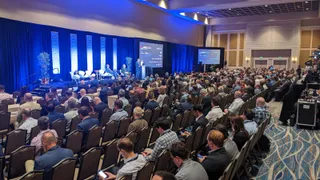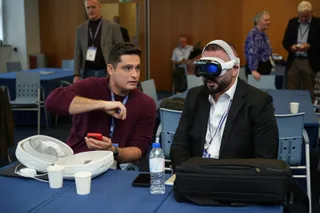ECS enhances military medical trainer with HaptX
Contact Our Team
For more information about how Halldale can add value to your marketing and promotional campaigns or to discuss event exhibitor and sponsorship opportunities, contact our team to find out more
The Americas -
holly.foster@halldale.com
Rest of World -
jeremy@halldale.com
Engineering & Computer Simulations (ECS) works with HaptX, to provide enhanced military medical virtual reality training.
ECS has enhanced its Tactical Combat Casualty Care Simulation (TC3Sim) medical trainer to incorporate a sense of touch in training scenarios to improve realism and training by using the HaptX Gloves Development Kit, an industrial-grade product for advanced simulation in virtual reality. HaptX Gloves enable users to experience virtual simulations with realistic touch feedback and natural interaction for the first time. This training debuted at the Interservice/ Industry Training, Simulation, and Education Conference (I/ITSEC), and subsequently, has been enhanced with even more realism that will be showcased at the International Meeting on Simulation in Healthcare (IMSH) January 26-30, 2019.
Shane Taber, ECS vice president of operations/Orlando, explains: “Previously, VR training focused on learning through visual and auditory cues. The sense of touch has been missing, and by integrating the HaptX Gloves, warfighters shift their perspective from the typical Virtual Reality interaction that uses a controller to click and interact, to more of a human-based physical approach of actually grasping an object or reaching out and touching a button with your finger. A medic can bandage a wound or administer CPR, perform highly tactile procedures and immediately see and hear the effect; feel the weight, the sensation, or movement of that action. We are excited to enhance the medical teams’ performance and improve their quality of training to allow trainees to learn more quickly and effectively with the integration of touch.”
ECS plans to continue researching and testing these technologies to continue improving relevant, innovative, and fully-supported capabilities for the U.S. Army Research Lab. Their plan will also demonstrate the capabilities of haptic technology to fill existing gaps in skills training and further the understanding of the perception of touch as a component of virtual training.


